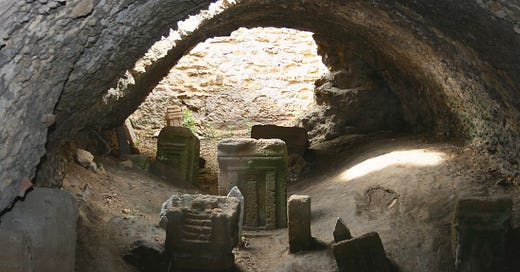If you are looking for the beginning of the study for The Young Carthaginian then you can go HERE for a brief introduction. At the bottom of the introduction you will find the links to each section of the study guide as it becomes available. If you would like to see the growing list of book studies available for free on this site you can go HERE. Enjoy!
Grammar Questions: (The Information of the Text)
What did Fabius tell Minucius that he should “on no account” do?
What brought about Minucius’ promotion “to an equal rank with Fabius”?
How did Hannibal manage to nearly destroy Minucius’ army?
What brought about the need for Hannibal to send Malchus to Carthage?
What, specifically, was Malchus to request from Carthage so that Hannibal could “destroy absolutely the power of Rome”?
By what route and means was Malchus to return to Carthage?
According to the text, why didn’t Nessus wake Malchus like usual?
Where was the prison, to which Malchus was confined, located?
Who actually heard the message of Hannibal which was intended to be delivered to the whole senate?
Logic Questions: (Interpreting, Comparing/Contrasting, Reasoning)
What does it mean to say that Minucius’ “blood was now up”?
Why is Hannibal constantly so successful against larger forces of troops? What did this battle against Minucius have in common with the battles at Trebia and Trasimene which were so successful?
The text says that Malchus “will be bitterly opposed by Hanno and his faction”. Why did Hanno and his followers hate Hannibal so fiercely?
What was it about this mission that was “altogether alien to his [Malchus’] taste and disposition”?
Why were the mutilations, done to the Numidian slave who brought Malchus food in prison, useful to the “officers of the law”?
Rhetoric Questions: (The Analysis of Ideas in the Text)
Hannibal said, “The time will doubtless come…that as Rome increases in wealth and luxury she will suffer from the like evils that are destroying Carthage.” Does luxury always lead to the downfall of a nation? How ought we to make sense of the apparent correlation between luxury and the decline of nations?
Theological Analysis: (Sola Scriptura)
Read Revelation 18. How does this chapter relate to the notion of luxury and ruin?
Read Psalm 112:1-3. Is having great wealth the same as being wicked?
Thinking through various stories of Scripture, who are some people that handled wealth well and who are some others that handled it poorly? What is the main difference between those who did well with their material possessions and those who did not?
According to Proverbs 11:4 and 22:1, what should we desire more than riches?



